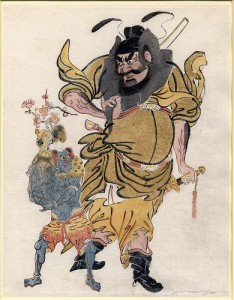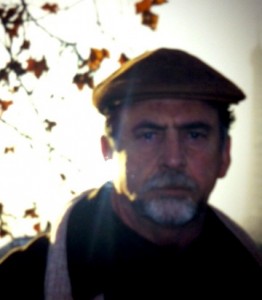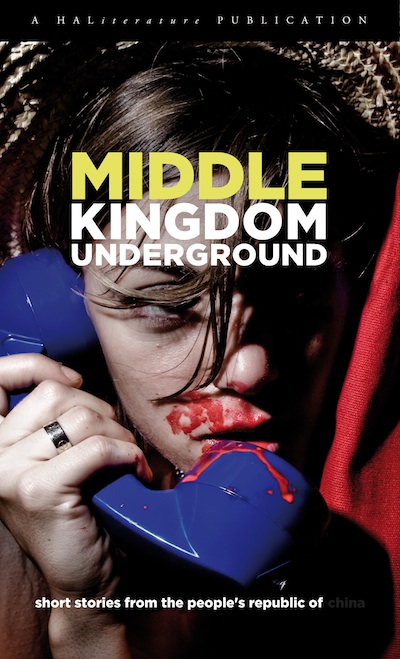Author Spotlight and Story: Ron Rash
Traveling as a Legend: Devil to Devil Killer
Traveling as April, 1990. Just one year since certain iconic acts of courage in Beijing.
In my capacity as Chief Operating Officer for an international nutrition supplement company that processed, packaged, and sold many herbs in quantity, I was headed to Hong Kong and on to Guangzhou in southern China to procure herbs in bulk.
Guangzhou hosted an international trade show twice per year, in April and August. During the first five days of the show, the Chinese sold products to visitors, and during the last five days, they bought goods.
My trip was in good hands, and despite the rigors of obtaining entry into China at the time, our trading partner in Hong Kong was able to secure visas with surprisingly little hassle. At that moment in history, China remained an almost closed society, and Americans were particularly distrusted. My host was the only son of a Chinese couple operating a large trading company out of Hong Kong. I will call him Hank. He had four sisters, but by custom stood to inherit the company. Hank lived in Vancouver, Canada, and met me in San Francisco, where we flew together to Hong Kong.
Also accompanying us was my head of procurement, Lucy. Lucy was a woman of large, curvy build with flaming red hair the color of an orange crayon, given to speech that was plain spoken and largely unvarnished. She was street smart and picked up nuances in the Chinese chatter around us. It was she who first noticed the twitching glances, the higher pitched tones, and a quickened pace whenever we encountered a new group.
These instances were prodigiously quick in Hong Kong and Guangzhou. Though Hong Kong was at that time still under British control, visitors going on to mainland China from there were indeed rare. During many stops along our trip we were obviously the first “round eyed” foreigners that many of the Chinese had ever seen. When asked about the reactions to our presence, a smiling Hank said that all foreigners were devils to the Chinese, and he laughed it off.
Lucy and I both knew the talk was going much deeper.
We were nicely quartered at a reasonably priced hotel looking over the main part of the ship traffic through Victoria Harbor and into Kowloon Bay. The hotel was owned and operated by the People’s Republic of China. That first evening at the hotel in Hong Kong, we heard a Korean freighter had sunk in the harbor, and that there were only a handful of survivors. A sad story indeed, but to be frank, I would not have given it much more thought, except for an incident following breakfast the next morning.
In 1966 I served a tour in Vietnam with the United States Army 196th Light Infantry Brigade in Tay Ninh province and Chu Lai. A big operation took us into the nasty Iron Triangle along with the 25th Infantry, the 101st Airborne, and the Republic of Korea (ROK) White Horse Division, among other elements. The army sent me on temporary duty to work with the 25th as a casualty reporter, and to gather intelligence. Most stressful job I ever had. I flew in helicopters to the PZs, or pick up zones, and interviewed wounded men.
A mandatory duty was to ask if they wanted their next of kin notified. First, though, I had to ask each soldier his outfit, his assignment, what weapons he was using, where he was located when he was wounded, if he knew what outfit the enemy was part of, what their strength was, what sort of weapons they employed, and on and on. It’s not hard to imagine how welcome those questions are when you have a bullet in you, or a gaping wound from shrapnel. These hops back and forth to the mobile hospital gave me chance to run into some of the ROK troops, a hardened group if ever I saw one. I got to know a couple of them who spoke a mixture of English, pidgin Vietnamese and Korean.
As I finished breakfast that second morning in Hong Kong, I moved to the elevator where a fresh pressed and nattily dressed Chinese host in khakis and a pith helmet was escorting a shoeless man in ill-fitting blue coveralls onto the elevator. We all got on together. As we rose slowly from floor to floor, I noticed a tattoo on the man’s arm. I asked the Chinese host if he could ask the man if that was the ROK White Horse Division tattoo. It was. The shoeless man had survived the sinking ship from the day before, and swam an incredible distance to safety. I thought I knew him. Even though we met briefly in Vietnam, I seemed to remember him because of his intense eyes. I could not fully explain the connection, but it was there.
When he found out who I was, he began chatting non-stop Korean. His host tried to keep up a running translation, but it was futile. We shook hands and hugged, and I think he wished me the best. I know I did for him. Then, I stepped off at my floor never to see him again. For a brief moment the emotions and memories were overpowering, and it was if I was still 20 years old and working my way through the wounded, interviewing all those great kids in that hell hole so far from home.
The next day Lucy, Hank and I boarded the train to Guangzhou. As soon as we climbed aboard, the buzzing and whispering and glances our way recommenced at an alarming level. We were the center of unwanted attention, and it unnerved us a bit. Not being used to the mores and customs of train travel in the region, I rose to go to the WC, but was stopped by what turned out to be an ever present PRC soldier. Seems I was not supposed to leave my seat until we cleared the border between Hong Kong and mainland China by five miles. My host explained my urgency, and I was allowed to do my business. At once in the WC, I put up the lid of the one-holer only to see it opened directly onto to the track spinning by at 60 mph directly below.
As I returned to my seat all eyes were on me. I pressed Hank. What the hell was this about?
Hank finally relented and told me that my large frame, my beard, and my general deportment reinforced to the Chinese around me that I was a dead-ringer for Zhong Kui, the Chinese legend known as the Devil Killer, or Demon Queller. Sometimes known as the exorcist, or the ghost slayer, Zhong Kui is the god who expels demons, evil spirits, and ghosts. Still, that was only half of the story. It seems the real fascination was with why the Devil Killer was traveling with the devil. They were certain that my lady companion, with the bright red hair, was the devil himself.
Ron Rash was born in Geary, Oklahoma. A Vietnam veteran, he returned from the war to his wife, going on to graduate from the University of Nevada, Las Vegas with a degree in business. Author of novels and stories, he lives with his wife of 47 years in Nevada, and is at work with his daughter on a book of personal essays.




